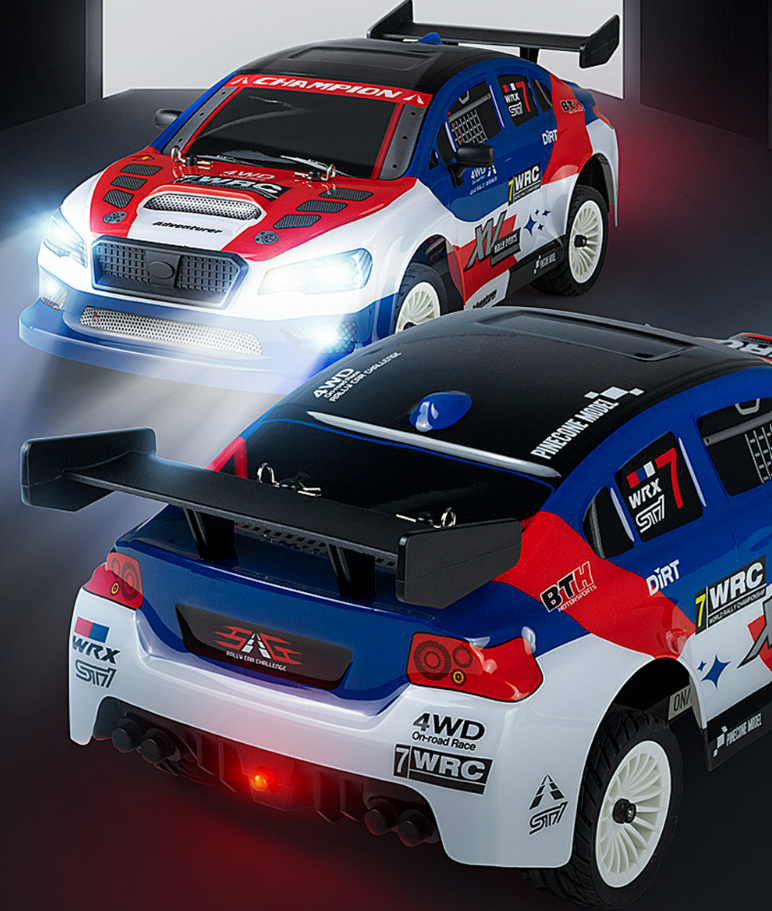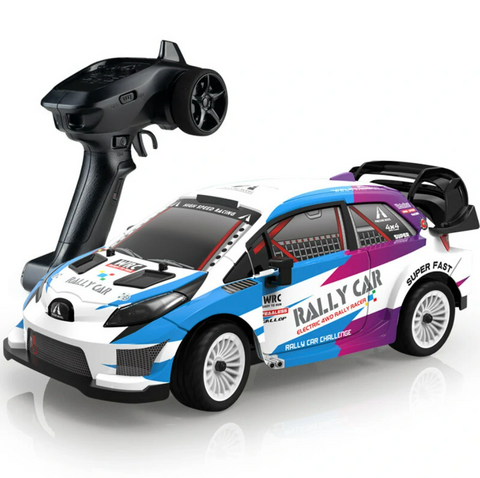
Exploring the Differences Between Nitro Fuel and Petroleum-Powered RC Cars
Share
The Difference Between Nitro Fuel RC Cars And Petroleum Vehicles
Gas-powered RC cars have been a source of fascination for hobbyists and enthusiasts for decades. These miniature marvels offer an exciting glimpse into the world of remote-controlled vehicles. Among the various types of gas-powered RC cars, nitro fuel and petroleum-powered models are two popular choices. In this article, we will delve into the distinctions between these two types, helping you make an informed choice for your next RC car adventure.
Nitro Fuel RC Cars: The Power of Nitromethane
Nitro fuel RC cars are powered by a special blend of nitromethane, methanol, and oil. This mixture offers high performance and speed, making them a favorite among racers and competitive enthusiasts. Nitro engines are known for their power, quick acceleration, and the distinctive sound they produce.
One of the main advantages of nitro fuel RC cars is their responsiveness. These cars deliver rapid acceleration and are capable of reaching impressive speeds, providing an adrenaline-fueled experience for enthusiasts seeking high-performance RC vehicles.
However, nitro fuel RC cars require careful tuning and maintenance. The engine settings need to be precisely adjusted to achieve optimal performance, making them suitable for hobbyists who enjoy tinkering with engines and tuning their cars for peak performance.

Petroleum-Powered RC Cars: Embracing Convenience
On the other hand, petroleum-powered RC cars utilize regular gasoline, similar to the fuel you use in your car. These cars are known for their convenience and ease of use. Unlike nitro fuel cars, petroleum-powered models do not require the meticulous tuning and maintenance associated with nitro engines.
Petroleum-powered RC cars are popular among beginners and hobbyists who prefer a hassle-free experience. They are relatively easy to start and maintain, making them a great choice for those new to the world of gas-powered RC cars. Additionally, these cars tend to be more fuel-efficient, allowing for longer run times on a single tank of gas.
Choosing the Right Option
When it comes to choosing between nitro fuel and petroleum-powered RC cars, it ultimately depends on your preferences and experience level.
-
Choose Nitro Fuel RC Cars If:
- You enjoy the thrill of high speeds and quick acceleration.
- You have experience with tuning and maintaining engines.
- You prefer the unique sound of nitro engines.
-
Choose Petroleum-Powered RC Cars If:
- You are a beginner or prefer a more straightforward experience.
- You value convenience and easy maintenance.
- You want longer run times without frequent refueling.
Conclusion
Gas-powered RC cars offer endless hours of entertainment and excitement. Understanding the differences between nitro fuel and petroleum-powered models is essential in making an informed decision based on your preferences and skill level. Whether you opt for the power and speed of nitro fuel or the convenience of petroleum, both options promise an exhilarating journey into the world of remote-controlled vehicles. So, gear up, choose your ideal gas-powered RC car, and get ready to race into the thrilling realm of RC car adventures.